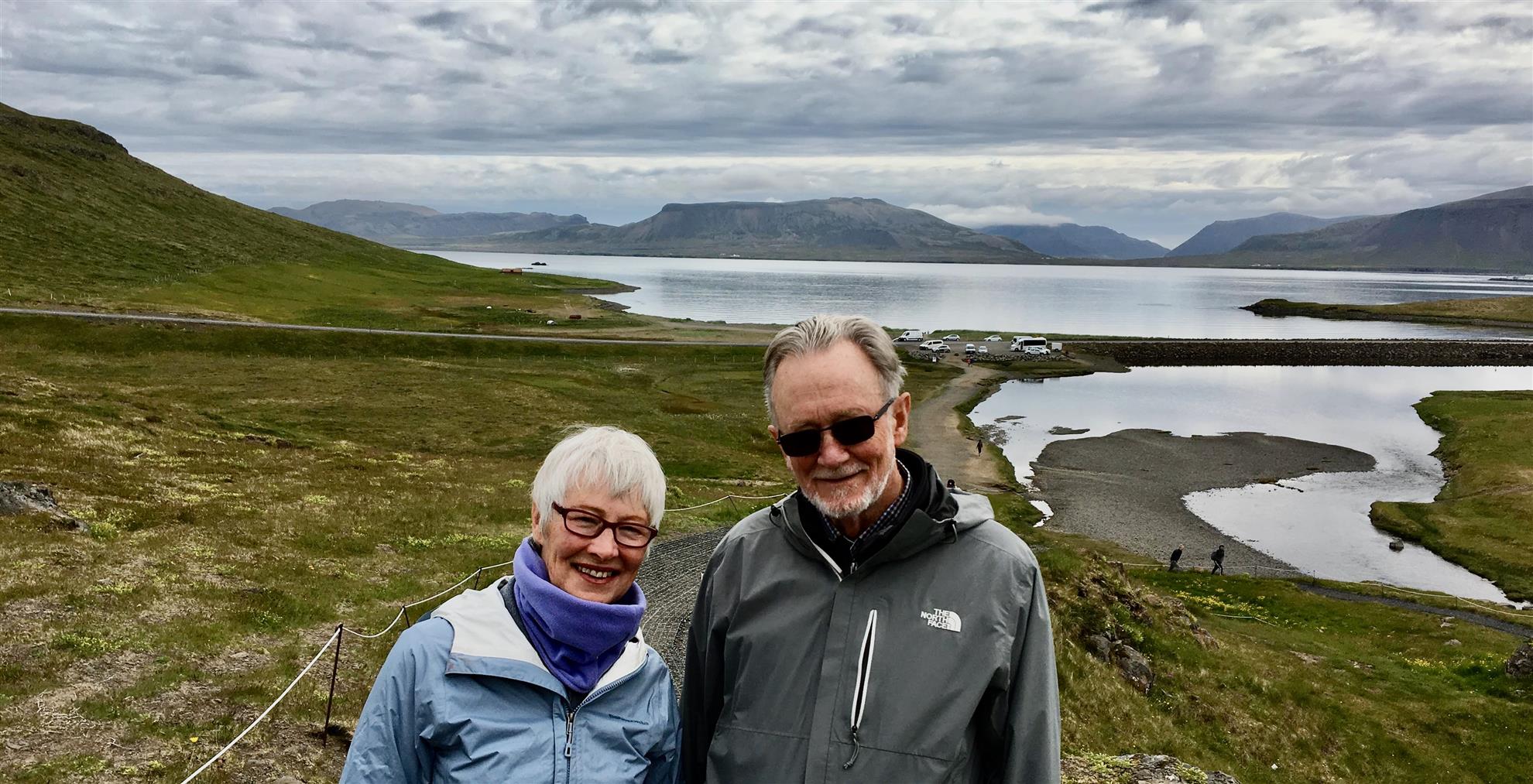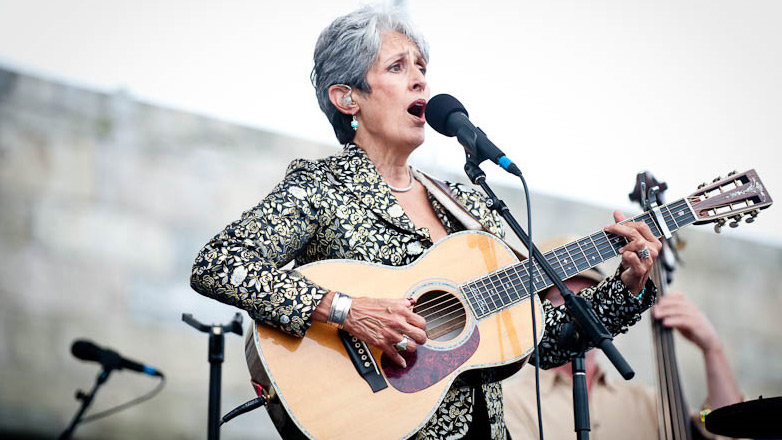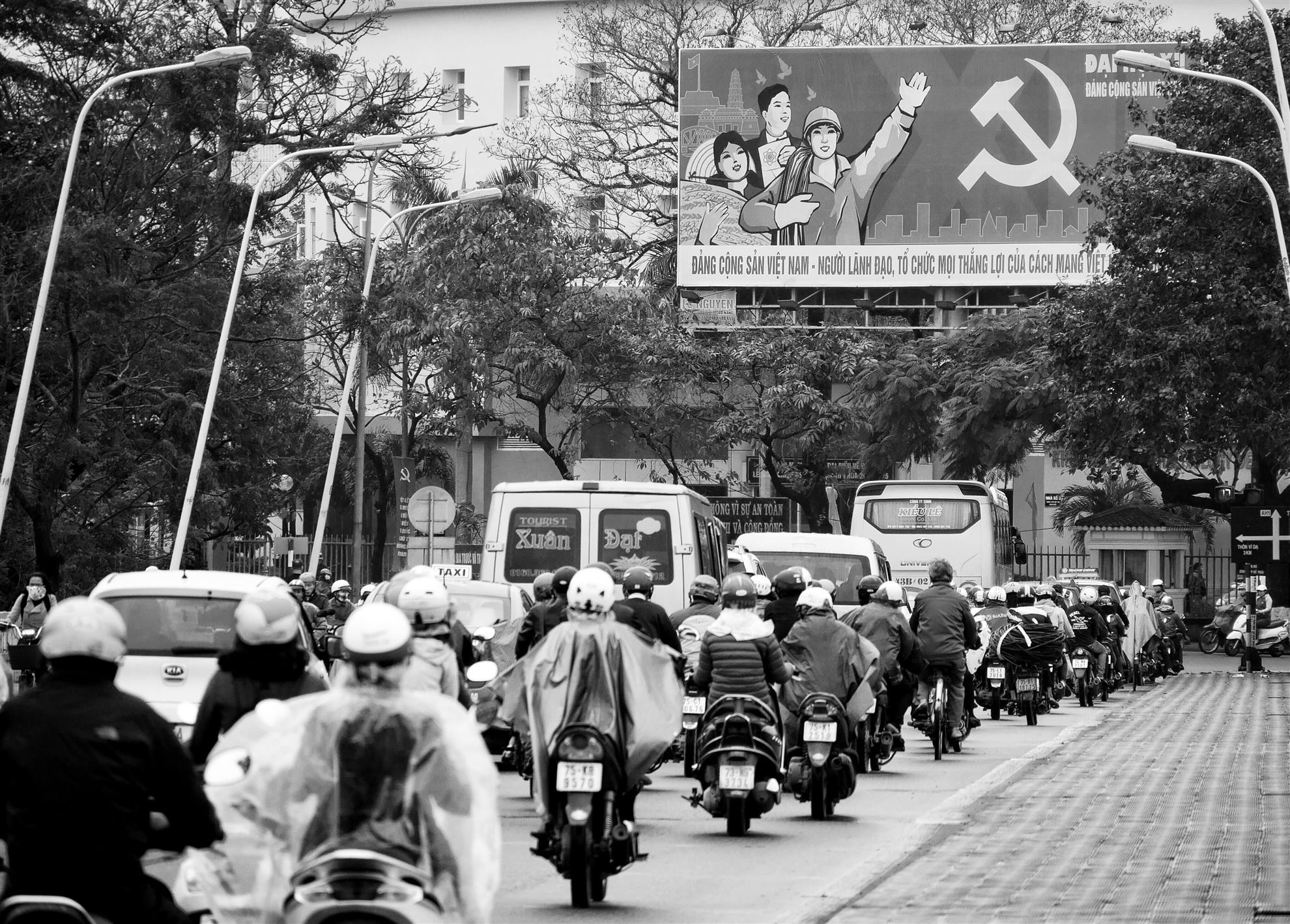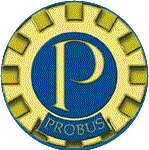 New member Professor Mike Porter in his early 20s in 1966 lived an economist’s version of the Californian “sex, drugs and rock and roll” revolution. (Pic at left: Mike and wife Sue holidaying in Iceland). While a student at Stanford, south of San Francisco, Mike travelled regularly for antiwar rallies on the Bay. The rallies were staged at places ranging from a napalm factory in Menlo Park to University of California, Berkeley. That’s where “Peace Radio KPFA” once announced the imminent “busting” by police of Uncle Ho’s Victory Garden. This garden was a secret marihuana plot in a mini-park right outside the UC Berkeley’s President’s office. “Come and get your plant before the cops come!” said the radio.
New member Professor Mike Porter in his early 20s in 1966 lived an economist’s version of the Californian “sex, drugs and rock and roll” revolution. (Pic at left: Mike and wife Sue holidaying in Iceland). While a student at Stanford, south of San Francisco, Mike travelled regularly for antiwar rallies on the Bay. The rallies were staged at places ranging from a napalm factory in Menlo Park to University of California, Berkeley. That’s where “Peace Radio KPFA” once announced the imminent “busting” by police of Uncle Ho’s Victory Garden. This garden was a secret marihuana plot in a mini-park right outside the UC Berkeley’s President’s office. “Come and get your plant before the cops come!” said the radio.Cultivating pot
Mike continues, “So we did! My student flatmate raced up in his Nash Rambler and grabbed one of hundreds of plants, a six-incher. We replanted it secretly in our Texan neighbour’s garden and watered it over the back fence. We harvested it at over six feet, and briefly travelled the world with pot stuffed in my tennis balls.
“I then moved to a black and Chicano part of Palo Alto – the ‘wrong’ side of Highway 101 from Stanford. I was with my imported 19-year-old Adelaide girlfriend and later wife Sue. I paid for her US visit by putting my $500 life savings into a 99% geared speculation on long term bonds, in a Stanford syndicate of students and informed professors.
Armed cops arrive
“We had a big back yard, and delightful young black kids formed a social club meeting in our shed. Sue had furnished it a bit and later gave them a lock. One day the Menlo Park cops surrounded the house and shed with guns drawn. It turned out the brothers of two of the boys had escaped the local penitentiary and moved into our shed accommodation! Months later our shed and rear land was somehow burnt down by a rival group.
 The folk singer Joan Baez (left, a few years back) lived from time to time just down the road. Her bloke David Harris was president of the Stanford Student Association. He lost the next election to student Vicki Drake who had slogans and actions based on ‘A Better Student Body’. In other words she successfully campaigned topless and later featured in Playboy.”
The folk singer Joan Baez (left, a few years back) lived from time to time just down the road. Her bloke David Harris was president of the Stanford Student Association. He lost the next election to student Vicki Drake who had slogans and actions based on ‘A Better Student Body’. In other words she successfully campaigned topless and later featured in Playboy.”Mike’s left lung and family
Mike has kept up his energy despite a congenital heart-lung defect that led to his losing his whole right lung in 1972. This led to him returning to Australia and high-level government advisings.
Mike’s wife Sue has also been in heavy roles, including Victorian Guardian and Acting Public Advocate two decades ago. The Guardian and Advocate in State law in Australia have the last words on intractable family and medical/police disagreements -- e.g. whether someone’s life support should be turned off. Sue has moved on to less stressful part-time involvement in volunteer classical music broadcasting with 3MBS.
Their younger daughter is a mother and currently consultant to the UN on Timor Leste, and her Portuguese husband is senior economist for the World Bank’s Timor Leste office. Their elder daughter is also a busy mother and a mergers and acquisitions lawyer, and their Washington-born son is a physical trainer and has been an early womens’ AFL coach.
More about high finance
 Getting back to higher finance, Mike says, “Stanford was the intellectual shock I needed. I benefited from very diverse thinkers with brilliant cross-disciplinary minds. Many were from scholarly Jewish families escaping Hitler, as Stanford benefited from a degree of east-coast - even at Harvard - anti-Semitism in the 1950s and 60s.
Getting back to higher finance, Mike says, “Stanford was the intellectual shock I needed. I benefited from very diverse thinkers with brilliant cross-disciplinary minds. Many were from scholarly Jewish families escaping Hitler, as Stanford benefited from a degree of east-coast - even at Harvard - anti-Semitism in the 1950s and 60s. “My hero and the youngest-ever economist to win a Nobel Prize was Kenneth Arrow, (left), who later won the Nobel Prize for economics in 1972 for his ‘impossibility theorem’. Five of his students would themselves get Nobels!”
After Stanford, Mike worked on economic reforms for the International Monetary Fund, The Reserve Bank of Australia, and the US Fed. He kept a hand in universities at Yale, Stanford again, ANU and Monash, in ‘permanent’ and visiting roles.
Major think-tank founded
At Monash he started a Centre of Policy Studies after his visit to Yale 1978-79. In 1982 that won one of ten differing discipline grants of an amazing $2.6 million each (1980s money value), direct to independent research leaders in a new university research centre competition under the Fraser Government.
The Centre’s economics reform work – often controversial - was policy-focused and based on expert globally recruited scholars. “When the grant expired after six years, I was asked to form a similar private sector Tasman Institute with personal financial support from Bails Myer, Dick Pratt and Rupert Murdoch.”
The Centre’s economics reform work – often controversial - was policy-focused and based on expert globally recruited scholars. “When the grant expired after six years, I was asked to form a similar private sector Tasman Institute with personal financial support from Bails Myer, Dick Pratt and Rupert Murdoch.”
Mike’s life history
Mike, who’s 77, first studied economics at Adelaide University. At 17 he was student-body Treasurer. A year later he was founding Treasurer of the University ALP Club, involved with the emerging Dunstan (and later Whitlam) opposition and governments. Since then, he’s worked for Labor and Coalition alike, and for governments of varying persuasions around Asia financed by the World Bank, the ADB, AusAID and ASEAN.
In the Whitlam government in 1973-75 he helped set up and run the Priorities Review Staff in the Prime Minister’s Department. Thereafter he was back to academia and then think tanks including Committee for Economic Development of Australia, the Tasman Institute, the Australia-China Business Council and his Deakin Policy Forum.
He was an adviser to NZ Prime Minister Sir Roger Douglas (who became Deputy Chair to Baillieu Myer in the Tasman Institute) and Victorian Premier Jeff Kennett and his treasurer Alan Stockdale. Kennett and Stockdale ran in the 1990s with many some of the changes under the Project Victoria banner, including privatisation, regulatory and reform programs.
Foreign aid
 Mike’s also been adviser to seven international government aid and development agencies. His practical work included policy research on recent desalination, population growth, energy, foreign aid, the National Broadband Network, infrastructure and toll roads in Australia and Indonesia, and tax reform.
Mike’s also been adviser to seven international government aid and development agencies. His practical work included policy research on recent desalination, population growth, energy, foreign aid, the National Broadband Network, infrastructure and toll roads in Australia and Indonesia, and tax reform.One highlight was being lead economist for Kinhill/Tasman on the Vietnam Southern Masterplan in the 1990s, a program financed by AusAID, but housed within the Ministry of Planning and Investment in Hanoi. The plan ended up endorsed by the Government of Vietnam led by Minister of Planning and Investment, Prof Tran Xuan Gia, Mike’s then liaison point.
Exchange rate floats
 “My most rewarding role was at the IMF when America was exporting the inflationary cost of an ugly and immoral Vietnam War, by vast dollar deficits. The world was being flooded with US dollars,” he says. “West Germany for example was trying to hold a fixed IMF style exchange rate for the Deutschmark. My theoretical work for my Stanford PhD got me into what in retrospect was a timely job at the International Monetary Fund 1970-72. I published and ‘conferenced’ on the mechanisms and reasons for currency floats in key countries. The Germans not long after in 1971 floated the Deutschmark with IMF support. This made the world my oyster as we moved to a more integrated but floating world financial system.
“My most rewarding role was at the IMF when America was exporting the inflationary cost of an ugly and immoral Vietnam War, by vast dollar deficits. The world was being flooded with US dollars,” he says. “West Germany for example was trying to hold a fixed IMF style exchange rate for the Deutschmark. My theoretical work for my Stanford PhD got me into what in retrospect was a timely job at the International Monetary Fund 1970-72. I published and ‘conferenced’ on the mechanisms and reasons for currency floats in key countries. The Germans not long after in 1971 floated the Deutschmark with IMF support. This made the world my oyster as we moved to a more integrated but floating world financial system.“Back in Oz I remember telling Gough Whitlam in our Priorities Review Staff that speculation against the fixed (but predictably adjusted) Aussie dollar was costing his government the price of a new hospital per week, and that stuck in his mind,” Mike says.
The Reserve Bank floated the Aussie dollar in stages between 1974 (Whitlam agreed to a trade weighted Treasury ‘bastardised float’) and eventually a market-based float courtesy of an unlinked cabal of the Campbell Committee on Banking, IMF, Paul Keating and John Howard post-1983. Mike says, “Whitlam had favoured what we advised in 1974, and what ultimately Keating and Hawke would do. But Treasury Secretary John Stone had blocked a well-researched clean float in 1974.”
Macquarie’s workstyle
He says his toughest time intellectually and physically was in Sydney and overseas with Macquarie Bank as a Division Director involved with Infrastructure and Asia from 1998- 2002. Holding to new ideas, sound principles and yet structuring to raise mega-finances was a challenge. “The norm was to work till 11pm but physically I couldn’t take that and began knocking off at 6 or 7pm.”
Money laundering (literally)
Mike also qualifies as the comic-book-style “absent minded professor”. Last year he ran a lunchtime discussion group at one of Melbourne’s clubs, which billed his credit card $70 per head. At the end of the lunch he collected $1400 cash from the 20 attendees and put it in a jacket pocket. After he got home he didn’t get around to banking it. Wife Sue, as wives do, sent his jacket off to the dry-cleaners, not realising this was also a money-laundering exercise. Somehow the money disappeared and has not been seen to this day. At the following discussion lunch at the club, Mike whinged about his loss but no-one passed the hat around to comfort him. (How do we know this? Because we were there).#
Footnote: Our suggestion to members is, don’t get Mike started on anything to do with economics and politics – he’d rather stick to music, books, movies, and grandkids. If he does get started on monetary theory, dial 000 or call Lifeline.
